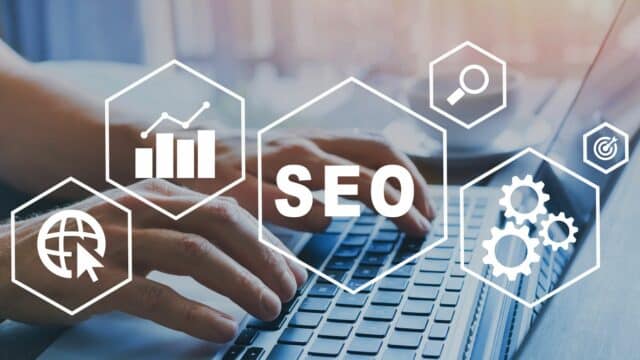Are you sure that your ad spend is as effective as it should be? The forum that most of us compete in has changed over the last decade. The ways that we get our message to our audience has also changed. According to a recent study, more than 50% of ad spending is now digital. Some very smart, successful enterprises spend a lot of money on digital advertising. How much should you spend on digital ads? Where should you be spending your digital dollars?

The answer to those questions is different for each organization. One of the key benefits we offer are specific answers to these questions. Being aware of trends is helpful but you do not want to be solely guided by them. We will do the research that lets you know where and how to spend your digital promotion dollars.
First, just for fun let’s look at some statistics. Digital spending is estimated to be 51% of all ad spending in 2018 – 2019. There are three broad categories of digital ad spending.
- Search (46% of digital spending)
- Social (28% of digital spending)
- Video (12% of digital spending)
The balance is spent on display ads, remarketing, etc. Another interesting fact is that about two thirds of digital ad spending is targeted to mobile users. The remaining is targeted to desktop users. Of course, this is a big change from a few years ago as well.
Next, lets look at some of the big spenders. Here are some statistics from Spyfu. According to them the top 5 Google Adwords (now Google Ads) spenders are.
Rank Domain Monthly Budget
- amazon.com $22.8M
- informationvine.com $5.76M
- expedia.com $5.69M
- jcpenney.com $4.72M
- homedepot.com $4.34M
It is not surprising to anyone who has ever searched for a product that Amazon spends a lot of money on search ads.
Here are the top 5 most expensive ad keywords, again according to Spyfu
Rank Term CPC (Cost per click)
- houston maritime lawyers $948
- maritime lawyers new orleans $840
- mesothelioma attorneys Texas $775
- new orleans maritime attorneys $733
- accident attorneys GA $721
And finally, when accounting for click volume, what are the most expensive keywords according to Spyfu?
Rank Term Cost/Day
- walmart $3.9M
- auto insurance $3.69M
- amazon $3.28M
- car insurance $2.91M
- best buy $1.92M
So how do you compete with those budgets? Don’t!
So, what is the smart way to spend your digital ad dollars? We’re glad that you asked. You worked hard for those dollars, and you expect them to bring you a return when you spend them. Getting that return means spending them wisely. How should you spend your digital ad dollars? Spend the right amount, on the right platforms, and target the right audience. How do you do this?
First, know your competition.
Take the case of search. Searchers will continue to search until they have the answers that they are looking for. It does not matter if they are searching for an answer to a question or need a product or service. They will keep searching until their need is satisfied. They will keep searching until you or one of your competitors satisfies their need. You want to be in the lists of potential answers. Part of doing this is knowing what search terms are listing your competitors. We provide you with both competitor discovery, and competitor keywords. You will know their organic keyword ranking. You will also know what keywords they are spending their search ad dollars. This data allows you to compete with them.
Second, know your audience.
The key to effective marketing is to know when, where, and how your prospects find information. You cannot control when they are looking to fill their need, but you can make sure you are there when they do.
The product or service you offer has a huge impact on your prospect behavior. Let’s use a realtor as an example. It is likely that many of their inquires are triggered by a for sale sign as a prospect is driving. This insight lets you know several things. It lets you know that they will be using a mobile browser. It lets you know that they are likely to use “Ok Google” or Siri to ask for information. The search query might be something like “how much does the house cost at 123 Maple Lane”. Knowing this information tells us a lot about how you should structure your web pages. It also lets you know how you need to position the locality of your organization. We can help you reach these important opportunities by using these insights.
As you can see from the realtor example above. They must make sure that their service area is well known to search engines. They also must use the vocabulary of their prospects. They also need to present their information well on mobile platforms.
You may not be a realtor, but you need the same understanding no matter what product or service you offer. Let us help you target your prospects, we look forward to helping you to compete for them.
Third, know your platform.
As they say, “Different strokes for different folks”. (Did you know that the phrase was coined by boxer Muhammed Ali?) Different audiences have different ways of learning about and finding information. We all have heard of attempts to influence public opinion using social media. Why do you think that was the chosen platform? Because it works.
Social media promotion is different than SEO and PPC (pay per click) advertising. Social media promotion has advantages and disadvantages. I would class social media as a push media platform, in the same way a TV or radio ad might be. As is the case for TV and radio, we know a lot about the audience. We know how old they are, their gender, where they live, even insights to their education and income levels. What we don’t know is if they are looking for your product or service.
This means that you use social media promotion in different ways than organic SEO and PPC. Facebook for example is great for building brand awareness and marketing to broad audiences. LinkedIn skews to business professionals. It lets you target companies, job titles, etc. Each social media platform has its own set of advantages and dis-advantages. We can help you best use each one to meet your goals.
If this blog post has given you food for thought, please let us know. We would welcome the opportunity to answer your questions and help you meet your goals.





